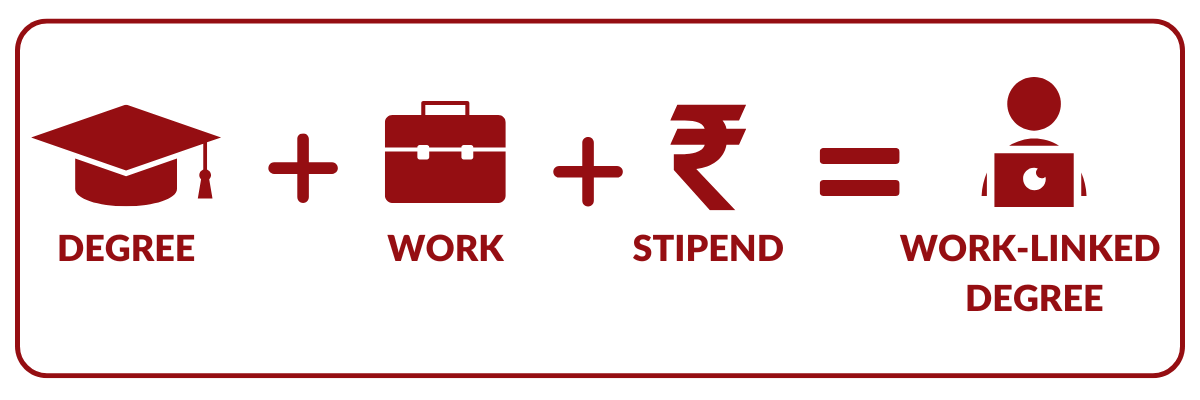- 9240203940
- admission@wlp-cu.com
Course Duration:
2 Years

Mode of Learning:
Online

Medium of Instruction:
English

Stipend
Earn up to ₹4.0 Lakhs/year with the internship of your choice*
Course Eligibility:
A candidate shall have passed the qualifying examination of BCA / B.Sc. (Computer Science) / B.Sc. (IT) / B.E. (CSE) / B.Tech. (CSE) / B.E. (IT) / B.Tech. (IT) or passed any graduation degree (e.g.: B.E. / B.Tech. / B.Sc. / B.Com. / B.A. etc.,) with Mathematics, Business Mathematics, Programming or Statistics at 10+2 level or at Graduation level with 50% aggregate.
For students having no Mathematics background compulsory 3 credit bridge course will be offered by the university.
Internship Eligibility:
Age limit: 26 years
*Earnings depend on role, industry, company policies, and internship availability.
What are Work-Linked Degrees?
Our work-integrated degree program lets you gain practical work experience through internships, while completing your degree with Chandigarh University.

Enquire Now
Program Overview :
The M.Sc Mathematics Work-Linked Degree Program offers a
perfect blend of academic rigor and practical industry experience, designed for students
passionate about advancing their mathematical knowledge while gaining hands-on exposure
to real-world applications. This program covers core areas of pure and applied
mathematics, including calculus, algebra, statistics, and mathematical modeling,
providing a solid foundation for solving complex problems in various industries.
Graduates of this program not only receive an advanced degree in mathematics but also
emerge with the professional experience and skills necessary to excel in research,
teaching, or high-demand roles in industries that rely heavily on mathematical
expertise.
The M.Sc Mathematics Work-Linked Degree Program offers a perfect blend of academic rigor and practical industry experience, designed for students passionate about advancing their mathematical knowledge while gaining hands-on exposure to real-world applications. This program covers core areas of pure and applied mathematics, including calculus, algebra, statistics, and mathematical modeling, providing a solid foundation for solving complex problems in various industries.
Graduates of this program not only receive an advanced degree in mathematics but also emerge with the professional experience and skills necessary to excel in research, teaching, or high-demand roles in industries that rely heavily on mathematical expertise.



